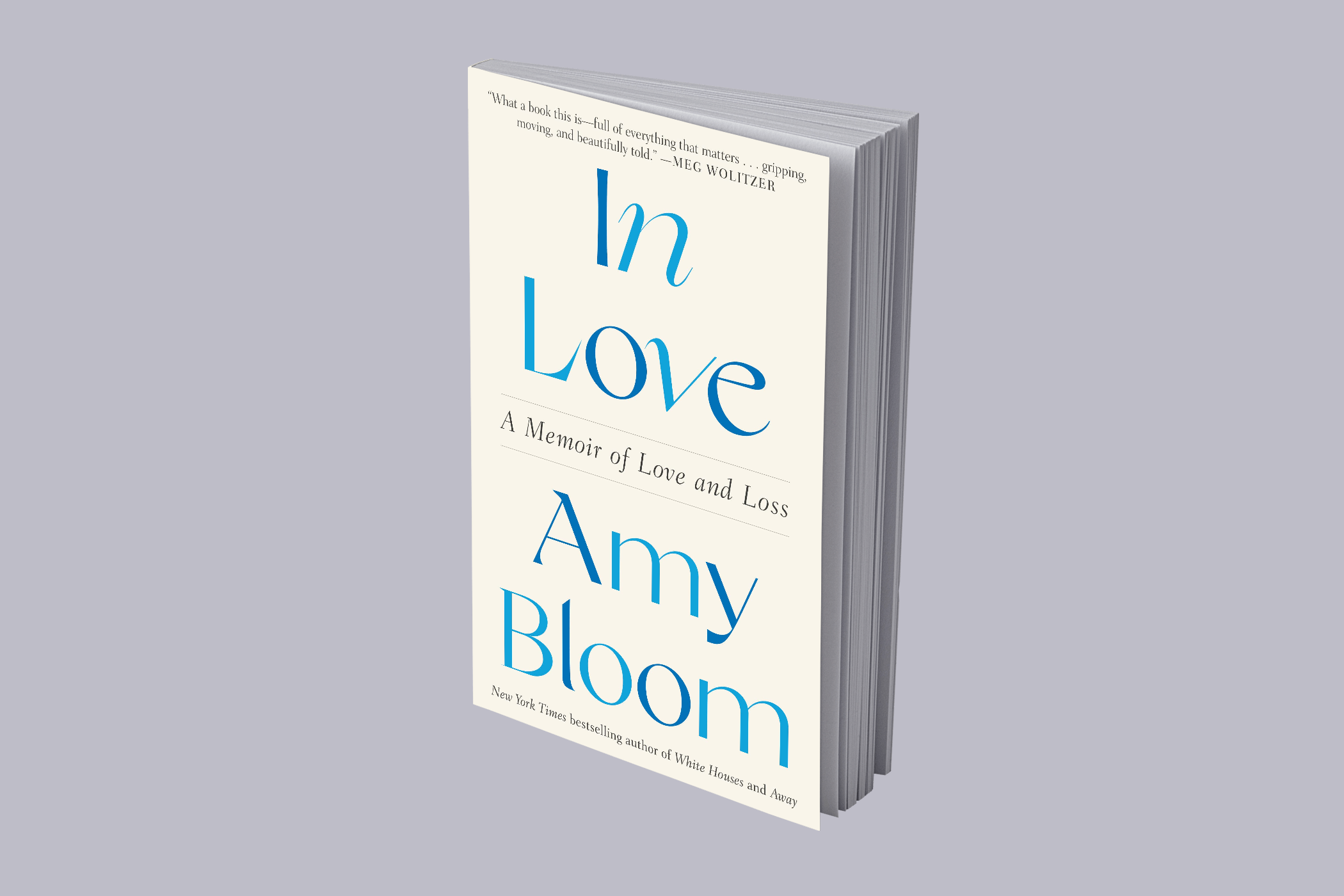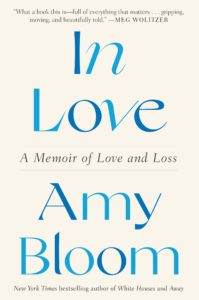
A Writer’s Final Farewell to a Spouse
Content warning: this review discusses assisted suicide .
In an abstract sense, all of us probably have a sense of our ideal death: quick, painless, probably while sleeping, perhaps surrounded by family at the ripe age of 100. But in actuality, Americans are particularly averse to discussions of death and dying. Culturally, we are primed to the idea of “fighting,” and far too many families avoid necessary conversations about desires and wishes about the end until it is too late. “In the early 1900s, Americans lived in close proximity to the dead and dying,” Rachel Ashcroft writes in The Week. “Most people died in their home, leaving family members to prepare the body. Historians argue that this changed when end-of-life care moved to hospitals and funeral parlors began looking after dead bodies. Death became far less visible. When people today view an open casket, the corpse is altered so as to hide the physical effects of death. This evolution from death in close proximity to death being hidden and painted over has fueled a tendency toward death avoidance which, when compared to many other world cultures, is a complete anomaly.”
Many of us struggle to imagine what preferences for our deaths might consist of, as beginning the conversation makes us acknowledge that death is inevitable.
The other side of death—what remains for the living, left behind—is, most frequently, grief. Amy Bloom’s new memoir is a study of grief, buoyed by prose that captures love between partners in a way I have rarely seen rendered on the page. “I think I have more to say,” Bloom writes as she describes her wedding ceremony. “But I can’t. We are holding hands, pressed against each other, holding each other up. I whisper to him, Every day of my life, and he whispers to me, Every day of my life” (222).

In 2019, Bloom’s husband, Brian Ameche, was diagnosed with Alzheimer’s disease at sixty-six. He came quickly to the conclusion that he did not want to suffer the “long goodbye” of Alzheimer’s, and decided to pursue assisted suicide. This is not an easy path in the United States: to meet the criteria of the nine states with right-to-die legislation, you must have proof from a physician that you have less than six months to live, as well as jump varying hurdles related to residency and autonomy (for example, being able to raise the glass with the medication to your mouth and swallow unassisted).
Bloom documents the process they undertook to qualify Ameche for Dignitas, an organization in Switzerland that provides the space and place to journey into death, without the same overly restricting laws that burden Americans seeking a dignified end. There are still rules, of course; Ameche and Bloom navigate securing testimonials from physiatrists and physicians alike, who can confirm for representatives at Dignitas that Ameche is not depressed nor being coerced into making his choice. “Brian explains [to the psychiatrist] that he needs to be high functioning cognitively to arrange for an assisted suicide,” Bloom writes. “We call it assisted, because we have not gotten used to the Dignitas’ phrase ‘accompanied suicide,’ which sounds to me like an orchestra will be standing by” (125). At every turn, Bloom is on a knife’s edge between humor and utter disbelief at circumstance.
Bloom and Ameche are able to travel to Zurich just a few weeks before that window would have closed forever—not because of Ameche’s mental capacities, but because of the COVID-19 pandemic rendering international travel impossible. “It does seem that there’s not a sentence I can write,” Bloom notes, “that doesn’t end with: and now he’s dead.”
I was hesitant to pick up In Love as a newlywed. I am superstitious enough to worry about inviting misfortune by way of acknowledging it. But when I stood under the chuppah last November and married my husband, I remember thinking about death. I chose to get married—and to do so in front of our friends and family—because I wanted to communicate my commitment to being with my partner until the End.
Brian Ameche’s End came earlier than anyone wanted, and yet he wrested control of the hand he had been given and died on his own terms. It is unfair to think of Ameche’s choice as a kind of opportunity, and yet Bloom is such a skillful and honest writer that you cannot help but feel slightly relieved the Ameche was able to choose his last words, to feel Bloom’s hands on his face as he closed his eyes for the last time. Selfishly, I feel like a better person—a braver person—for having gotten to know Ameche through Bloom’s writing, for having to face the process of dying from start to finish over the course of 222 pages.



